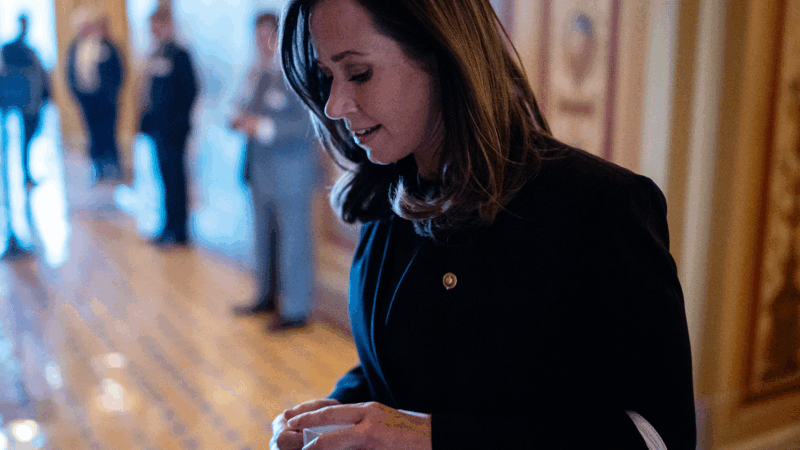Roy Moore’s Foundation Guaranteed Him a $180,000 Salary
In 2003, Former Alabama Chief Justice Roy Moore, a GOP U.S. Senate candidate, founded a charity: The Foundation for Moral Law. That coincided with a major legal dispute involving Moore around a large Ten Commandments monument he had placed in the state judiciary building. The Washington Post on Wednesday published a report revealing that Moore had arranged to receive a salary of $180,000 a year for part-time work at this charity. The report goes on to say Moore collected more than $1 million from 2007 to 2012 — an amount well beyond what the group disclosed in federal tax filings, according to the Washington Post. That includes money the charity owes Moore. WBHM talked with Washington Post investigative reporter Shawn Boburg, who reported the story with Robert O’Harrow Jr. on the charity.
Interview Highlights
Moore’s role in the charity
Moore helped found it. Initially he was chairman, and it was a loose affiliation until 2007 when he became the foundation’s president.
How he benefited
The foundation brought in an enormous amount of money and gave rise to Moore’s persona as the fiery judge who refused to remove the Ten Commandments monument. It helped boost his profile as someone standing up to the federal government pushing for the separation of church and state.
The money
Moore privately arranged to receive $180,000 a year. The board in 2007 met, accepted some outside guidance from attorneys who they asked to help set a regular salary. Figures that came back were up to $500,000. Moore’s recommendation was $180,000 a year. Tax filings show he was working 20 hours a week. The issue? Over the years, annual tax filings don’t show anything close to the $180,000 that the board agreed to in 2007; instead they show $55,000 to $105,000. They also list a variety of jobs from legal independent contractor to the charity’s president. So there’s a lot of confusion and dissonance.
How it happened
The group had little oversight. Then-chairman of the board John Bentley told the Washington Post he spent very little time reviewing these tax filings, and it was a surprise that the $180,000 salary wasn’t disclosed to the public. So who was responsible for filling out these public disclosures and what was their intent? That’s still unknown.
The charity is unable to pay
The foundation was a relatively small charity. Over time, the charity had difficulty raising the sums it was raising in its early years. And it couldn’t fully pay the $180,000 it has agreed to pay Moore almost from the beginning. So the charity offered him an IOU. To guarantee Moore would get that amount, it gave him a promissory note in 2011. The amount in the end rose to $540,000, but the charity still owes Moore. The charity filed a mortgage on its headquarters in Montgomery, its most valuable asset. That building would go to Moore if the charity can’t pay.
Could it affect Moore’s bid for Senate?
Hard to say. Moore is a figure who excites strong passions among his base supporters, typically evangelicals and staunch conservatives. It’s hard to see a significant amount of that support eroding over questions about a charity whose stated purpose is to promote evangelical principles in government.
Moore’s response
Moore’s campaign spokesman referred WBHM to John Bentley, a member of the charity’s board and its former chairman. Bentley is an Alabama Circuit Court Judge, and was unavailable late Wednesday. According to the Washington Post report, “Roy and Kayla Moore did not respond to interview requests. Kayla Moore provided answers to detailed questions in a statement, and the charity gave The Post internal documents to clarify why Moore received the promissory note.”
My doctor keeps focusing on my weight. What other health metrics matter more?
Our Real Talk with a Doc columnist explains how to push back if your doctor's obsessed with weight loss. And what other health metrics matter more instead.
Baz Luhrmann will make you fall in love with Elvis Presley
The new movie is made up of footage originally shot in the early 1970s, which Luhrmann found in storage in a Kansas salt mine.
Forget the State of the Union. What’s the state of your quiz score?
What's the state of your union, quiz-wise? Find out!
A team of midlife cheerleaders in Ukraine refuses to let war defeat them
Ukrainian women in their 50s and 60s say they've embraced cheerleading as a way to cope with the extreme stress and anxiety of four years of Russia's full-scale invasion.
As the U.S. celebrates its 250th birthday, many Latinos question whether they belong
Many U.S.-born Latinos feel afraid and anxious amid the political rhetoric. Still, others wouldn't miss celebrating their country
SNL mocked her as a ‘scary mom.’ In the Senate, Katie Britt is an emerging dealmaker
Sen. Katie Britt, Republican of Alabama, is a budding bipartisan dealmaker. Her latest assignment: helping negotiate changes to immigration enforcement tactics.







